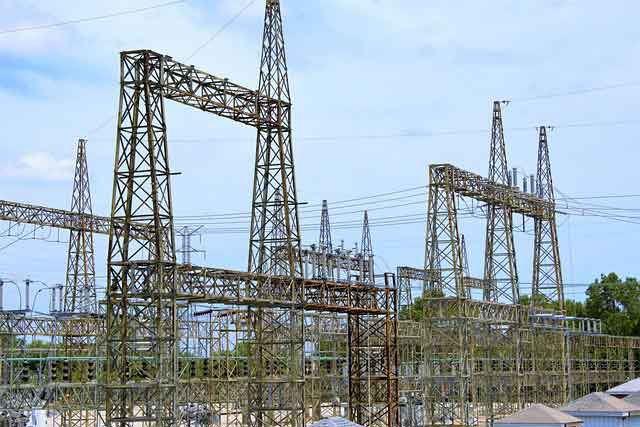Power grid bottleneck stalls Maine project
MILLINOCKET, MAINE - A gridlocked New England power grid in Maine has stalled a Harpswell developer's plan for a $50 million biomass boiler in Millinocket.
Jerry Tudan, of Peregrine Technologies, had already lined up financing for the 17-megawatt project that would bring 45 jobs to the Katahdin region when he got the bad news from the grid manager.
Tudan said his company sought to register the site with ISO-New England, only to be told that a northern Maine wind farm project had registered earlier and had "maxed out" any available access to the grid at this time.
Tudan has no quarrel with First Wind, the Massachusetts developer of Stetson Mountain and other wind projects in northern Maine. But he said that company is among several that have queued up for so much space on the grid in coming years that no one else can fit.
"There's no bitter tears here toward First Wind about it," Tudan said. "That's the marketplace, though I feel very bad about how it went because we had a beautiful project."
ISO-New England manages the transmission of electricity through the 45-, 115- and 345-kilovolt lines connecting various power company systems. It's open, on a first-come, first-served basis, to generators that meet reliability standards.
Three of Maine's largest utilities — Bangor Hydro-Electric Co., Central Maine Power and Maine Public Service — have plans to lay new lines, but none will likely materialize before 2011, at the earliest.
"More power generators could come on the grid now, but there is a certain amount of congestion between Maine and southern New England," said CMP spokesman John Carroll, who agreed that the New England grid is getting gridlocked. "Therefore, there are some limited periods of time where they would not be able to run because their power couldn't be transferred out of Maine."
To boost capacity, several large-scale grid expansions are in the works, including a CMP 345-kilovolt line that would run nearly 250 miles from Orrington to Eliot and New Hampshire. It would go on line by 2012 and cost $1.1 billion to $1.5 billion.
Bangor Hydro has proposed a project which would use 345-kilovolt lines to connect its Orrington substation to the Boston area, at an estimated cost of $2 billion.
"Ultimately ISO-New England or the system's operator-owners will expand the system, but not for a single generator, because the rule is that generators pay to get interconnected to the system," said Gerry Chasse, vice president of transmission and distribution operations at Bangor Hydro.
"To say that any one generator has taken up all capacity is a little inaccurate," Chasse said. "New generators are already coming into an already-constrained system in that there isn't sufficient capacity to carry energy to the market under all conditions."
Town Manager Eugene Conlogue had welcomed the biomass project. He expressed disappointment, but not surprise, that it is likely dead. Power generation, Conlogue said, is "one of our growth areas in Millinocket, but if they don't have a way to get power to the grid, it's a dead issue."
Related News

Electricity deal clinches $100M bitcoin mining operation in Medicine Hat
TORONTO - The City of Medicine Hat has agreed to supply electricity and lease land to a Toronto-based cryptocurrency mining company in a deal that will see $100 million in construction spending in the southern Alberta city.
The city will provide electric energy capacity of about 42 megawatts to Hut 8 Mining Corp., which will construct bitcoin mining facilities near the city's new Unit 16 power plant.
The operation is expected to be running by September and will triple the company's operating power to 60.7 megawatts, Hut 8 said.
#google#
"The signing of the electricity supply agreement and the land lease represents a key component…




